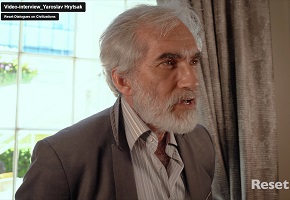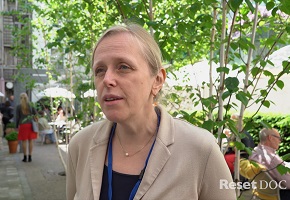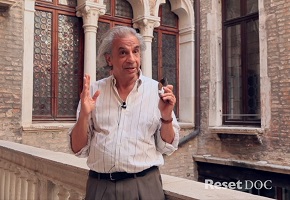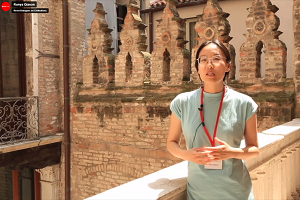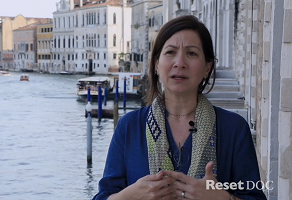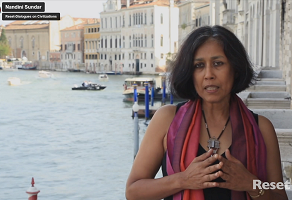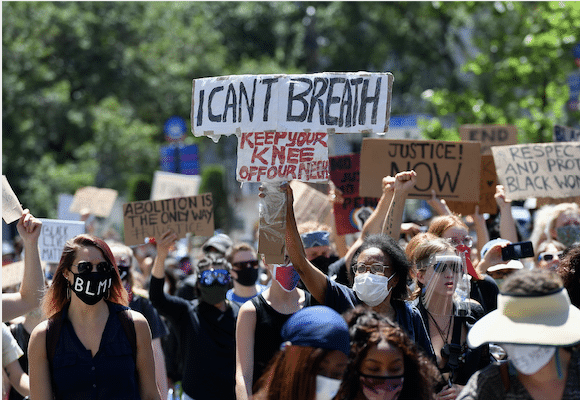
Videos
Society

- Sharan Grewal 5 September 2024Sharan Grewal, Assistant Professor of Government at William & Mary, discusses Tunisia’s democratic collapse, attributing it to excessive consensus between political factions, which led to public disillusionment and the rise of populist leader Kais Saied. While a short-term return to democracy is unlikely due to Saied’s popularity, there may be a chance in the future.
- Radwan Masmoudi 27 August 2024For years, Tunisia was viewed as a democratic success in the Arab world. However, according to Radwan Masmoudi, President of the Center for the Study of Islam and Democracy (CSID), it ultimately failed because it was still in the process of developing into a full democracy, with weak political parties, unaddressed economic issues, and declining international support undermining its progress.
- Yaroslav Hrytsak 11 March 2024Post-Soviet Ukraine has been considered a classic case of a “cleft country” torn between the agrarian Ukrainian-speaking West and the industrial Russian-speaking East. The Russian-Ukrainian war has revealed that despite strong regional divisions, Ukraine proved to be a very resilient political community, which led to the emergence of “the third Ukraine.” It is a Ukraine of neither the West nor the East, but of the Center, meant both in regional and political terms, as highlighted by Professor Yaroslav Hrytsak (Ukrainian Catholic University, Lviv).
- Anna Colin Lebedev 23 February 2024How can a war between two communities start without those two communities being involved in a conflict that preexists the war? And how is it that these communities eventually make sense of the conflict as something that is deeply socially rooted? Anna Colin Lebedev, Professor of Sociology at the Université Paris Nanterre, gives her assessment of the social roots of the war between Russia and Ukraine.
- Akeel Bilgrami 3 April 2023Is the State back on the public scene after the Covid-19 pandemic? An historical perspective by Akeel Bilgrami in this video-interview shot on the margins of Reset DOC’s 2022 Venice Seminars, “Between State and Civil Society: Who Protects Individual Liberties and Human Dignity?”
- Runya Qiaoan 27 October 2022How can the relationship between the State and civil society be undestood in a Chinese perspective? Runya Qiaoan gives her assessment in this video-interview shot on the margins of Reset DOC’s 2022 Venice Seminars, “Between State and Civil Society: Who Protects Individual Liberties and Human Dignity?”
- Mona Harb 29 September 2022Lebanon’s unique power-sharing system used to be celebrated as a model of effective democracy in a highly diverse context. That is no longer the case. Prof. Mona Harb (AUB) explains why in the second part of this video-interview shot on the margins of Reset DOC’s 2022 Venice Seminars, “Between State and Civil Society: Who Protects Individual Liberties and Human Dignity?”
- Nandini Sundar 3 August 2022Citizens who are member of societal, ethnic or religious minorities are per se more vulnerable than the rest of a country’s population. That should be the case in India, too. Yet rather than being protected by the State, many of them are facing increasing hurdles, if not outright harassment through public measures. Prof. Nandini Sundar explains how.
- 11 January 2021This video is a recording of the 4th panel of the conference “The Divided Society After November 3rd” held on the 23rd and 24th of November 2020 in collaboration with the Centro Studi Americani and the Italian Academy at Columbia University. In contemporary democracies, conflict over the correct policy responses to everything from the Covid-19 pandemic, economic inequality, and ethnic diversity continues unabated. In the United States in particular, this conflict has sown profound divisions between the actors of the staunch two-party system, which are not only political but have taken on a distinctly cultural hue. As the 2020 presidential election results and recent events have clearly illustrated, this divide is deeply entrenched in the political landscape and does not show signs of easing.




